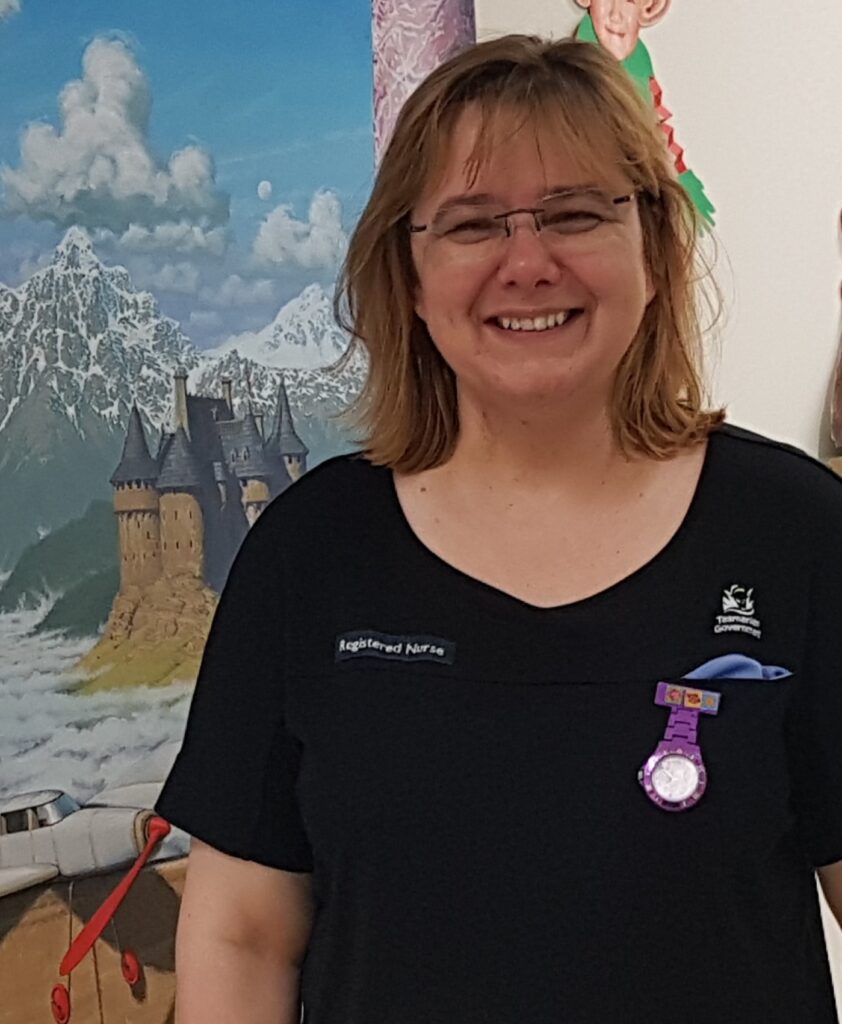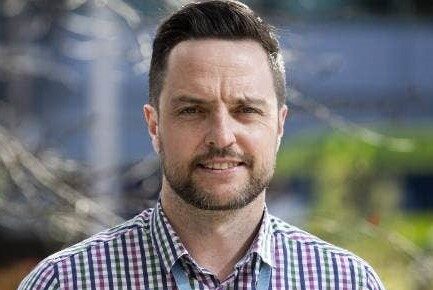Spotlight Series – Helen Starosta
Helen Starosta
Paediatric Oncology & Haematology Clinical Nurse Consultant
Paediatric Oncology Service, Tasmania
Royal Hobart Hospital
Helen has seen the treatment pathways for Tasmanian children diagnosed with cancer evolve during her time nursing at Royal Hobart Hospital. “I have been doing this a long time,” reflects Helen. “With these changes have come a number of challenges, but I love the personalised care that we can provide by being an oncology unit in a small state.”
The vast majority of Tasmanian children diagnosed with cancer are referred to Royal Hobart Hospital, where – depending on their diagnosis and geographical location – may continue their treatment in Hobart, re-locate to Melbourne or can have some of their treatment at Launceston.
“One of our biggest challenges is ensuring that staff are appropriately trained to administer chemotherapy to paediatric patients. We have excellent support through philanthropy to assist with nursing education. Our other significant challenge is ensuring sufficient nursing staff in Hobart as our workload has changed with the opening of clinical trials.”
Currently, Helen (as the Clinical Nurse Consultant) and one Registered Nurse make up the nursing staff in the Paediatric Oncology-Haematology Clinic. In addition to young cancer patients, they also treat children with non-malignant haematological conditions, bleeding disorders (Tasmanian Haemophilia Treatment Centre), immunodeficiencies and provide a range of other services such as INR management.
“Like many units around Australia, our nursing workforce is already at capacity. We know that opening clinical trials are essential to ensure Tasmanian children have access to the best treatments closer to home, but I think there is an underestimation of the nursing contribution when a child participates in a trial.”
COVID-19 has further stretched their resources. While Tasmania has remained relatively unaffected thus far, an early outbreak in the north west of the state triggered a range of infection-control strategies, many of which remain in place.
Helen began her nursing career in the general paediatric ward, which included oncology patients. At that time, Tasmania did not offer a paediatric nursing course, so Helen moved to Sydney, where her training included a paediatric oncology rotation. Upon her return to Tasmania, she provided cover in the paediatric oncology clinic, and then moved to Great Ormond Street Hospital (UK).
“I learnt so much, but it was always a temporary change. I love Hobart, and the variety and autonomy in a smaller unit suits me. We get to know our patients so well.”
When asked what the future holds in this area, Helen cites the potential for growth and enhancing oncology services throughout Tasmania. “Increasing the nursing workforce is central to providing quality care and supporting our patients and their families. I would also like to see formalised mechanisms established to offer older AYA patients access to paediatric clinical trials – we should be maximising these opportunities. Why shouldn’t the children and young people of Tasmania get the best expert medical and nursing care where possible?”
Below are the different health professionals and researchers we have shone a light on during September
- ANZCHOG Chair (Professor Nick Gottardo)
- Principal Research Fellow (Natalie Bradford)
- Paediatric Oncologist (Dr Tristan Pettit)
- Clinical Research Nurse (Reg Gayaman)
- Consumer (Anne Kay)
- Pharmacist (Hayley Vasileff)
- Research Scientist (Dr Raelene Endersby)
- Senior Research Fellow (Dr Jennifer Cohen)
- Psycho-oncology clinician & researcher (Associate Professor Maria McCarthy)
- Social Worker (Tanya Alestalo)
- ANZCHOG Chief Executive Officer (Robyn Strong)
ANZCHOG news:




